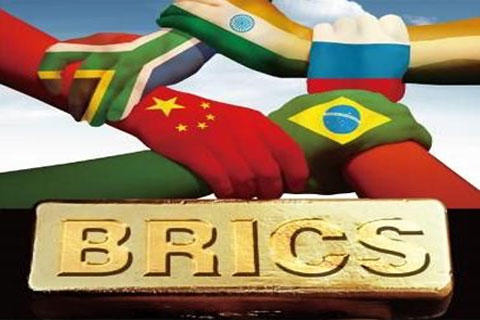Newsroom Media
New Development Bank Poised to Help the Marginalized
 >
>
It has been less than six years since the so-called BRIC nations – Brazil, Russia, India and China – held their first formal summit and five since they admitted South Africa to their exclusive club of ambitious and dynamic emerging economies, now known as the BRICS.
BRICS leaders recently launched the world’s newest bank: the New Development Bank (NDB), which will use its US$ 100 billion in initial capital to fund infrastructure and sustainable development projects both at home and overseas.
The NDB will not only bind these countries together in common purpose but will introduce something not seen since the dawn of contemporary multilateralism: competition with the Western-dominated international financial system.
Despite the best intentions of many, the work of the World Bank and International Monetary Fund has consistently fallen short of its aim to provide development assistance for the most marginalized people. With their often-problematic loan conditions, they have at times impeded rather than promoted equable development. The NDB could change this. In fact, it could be nothing less than revolutionary.
It could, for example, provide critical development assistance to middle-income countries whose economic status has prevented investment by traditional donors. Jordan, Iraq, Lebanon, Turkey and Egypt are reeling from the knock-on effects of the war in Syria, now in its fifth year. They have taken in 98 percent of the war’s refugees, with drastic repercussions for their economies and societies. The war has already cost Lebanon US$ 20 billion – almost half of its annual GDP – and Turkey US$ 12.5 billion.
But the World Bank, which has reserves of more than four times the NDB’s committed capital, considers these countries too rich to be helped with its more generous loans at low or zero interest rates.
The United Nations estimates that Jordan, Iraq, Lebanon, Turkey and Egypt will collectively need US$ 5.5 billion this year alone to fund their response to the Syria crisis. So far, slightly more than one-fifth of that amount has been provided by the international community. This abandonment perhaps gives rise to another acronym that we could employ to describe Syria’s neighbors: the JILTEd. If the BRICS Bank were operational today, it could provide some of the necessary funds and have plenty left over.
BRICS member states, despite their limited reserves, have already provided development assistance to Syria. Brazil pledged US$ 5 million at a recent international conference on the Syrian crisis. But what the NDB offers is a unique, collective initiative with the potential to both amplify and institutionalize this assistance at the multilateral level.
This is a great opportunity for BRICS countries to step in where traditional donors will not or cannot, thereby demonstrating their collective leadership on behalf of other emerging economies.
Aid to countries in the Middle East would also be in line with the policies espoused by individual BRICS governments, who acknowledge a correlation between development and sustainable peace. Peace and stability in the region are global public goods. By supporting development in Syria’s neighbors, the NDB could increase stability across the entire region, and make peace more likely. This would be in everyone’s interests.
Furthermore, BRICS member states are awash with development expertise, especially livelihood support and matters related to agriculture, water, and sanitation and health. The NDB could harness this wealth of experience to help Syria’s neighbors cope by improving their water sanitation and hygiene, and electrical infrastructure.
The advent of the NDB is exciting for those who have long lamented the inertia and bias of the current global financial system. Through the NDB, the BRICS can redefine what development assistance means and how it works, and ensure that the most marginalized communities benefit from it.
Syria and the crisis it has caused in the region is the most pressing humanitarian disaster of our time. In this, the NDB has an opportunity to take the lead and guide the international response that has so far been woefully inadequate. And as an institution dedicated to the public interest, it must ensure that its operations in the region are transparent. Strong accountability mechanisms must also be put into place.
Shortly before he left office, one of the founding members of the BRICS, China’s president Hu Jintao, detailed his vision for the bloc as “defenders and promoters of developing countries and a force for world peace.” BRICS nations have an opportunity to show that they are different, people-centered and determined to do right not just by their own people but by everybody living in fragile states or feeling the negative effects of struggling economies.
The NDB could be an exciting realization of Mr. Hu’s dream if it succeeds in mobilizing much-needed funds for the humanitarian and regional spillover of the Syrian crisis.
Na’eem Jeenah is executive director of the Afro-Middle East Centre in Craighall, South Africa
Original Article :
http://english.caixin.com/2015-07-20/100830610.html
